“I hope that
we overthrow this horrible supremacist capitalist colonialist system that we
are all still bound to. I hope that we recognise that we have agency to make
different choices and that we aren't trapped. That we can live differently in a
way that feels more connected with each other, community, and with the land,
and this different way of being starts to feel really joyful and appealing to
people.”
MARCHELLE
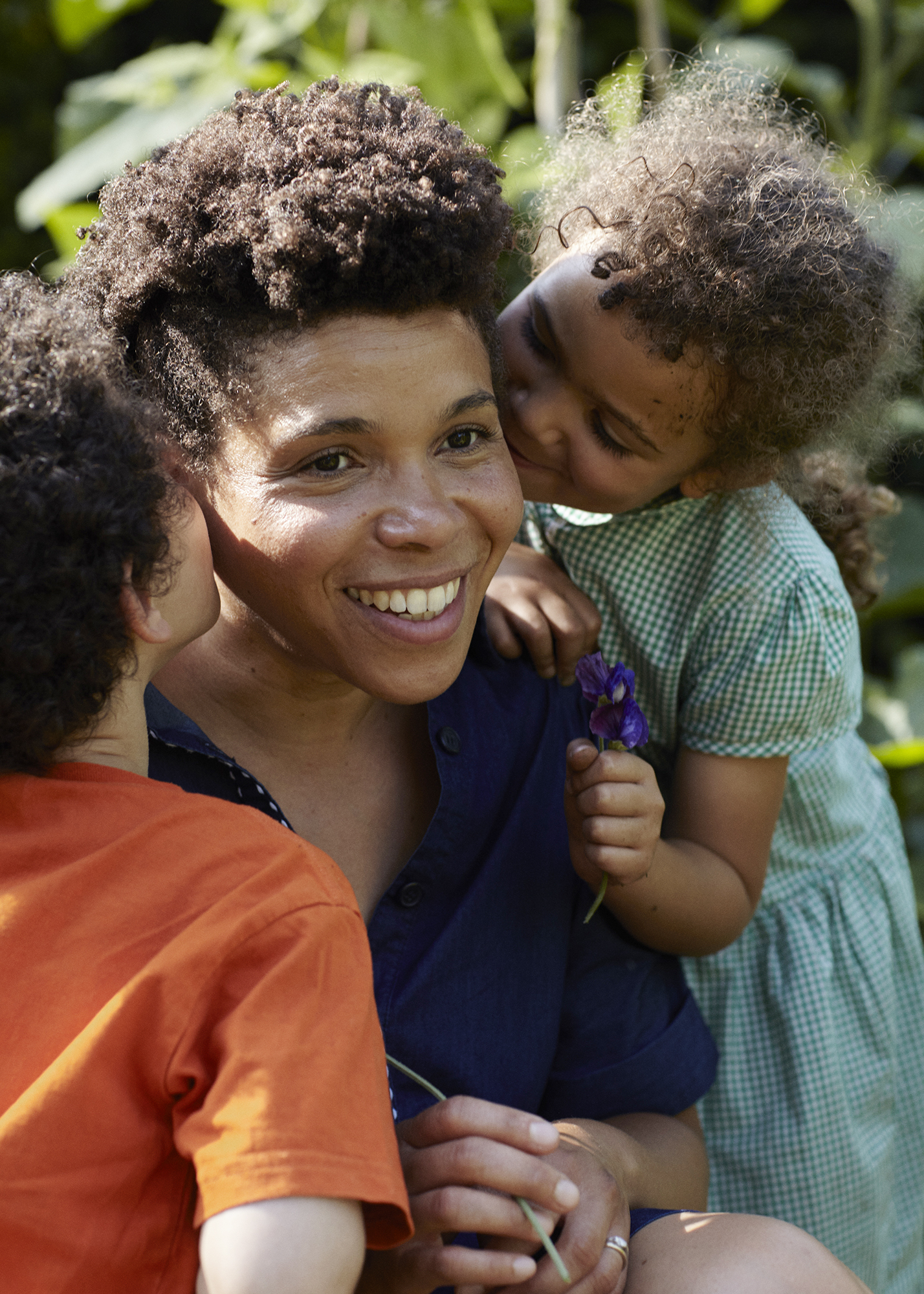
Text: Beth Mark
Photography: Sandra Freij
Meet Marchelle, a Psychiatrist and Psychotherapist, lover of plants and mother to two young children.
Marchelle was born and raised in Trinidad and moved to the UK at 19 years old to study medicine. Whilst studying she met her husband and, as they say, ‘the rest is history’, she settled down and lives with her husband, their children and cat in a small village in the UK.


Marchelle
has spent years of her life dedicated to body and mind, training to be a doctor
and specialising in mental health. She is currently just getting back to work
as a therapist after a career break while moving her family to a new home in a village just outside of Bath.
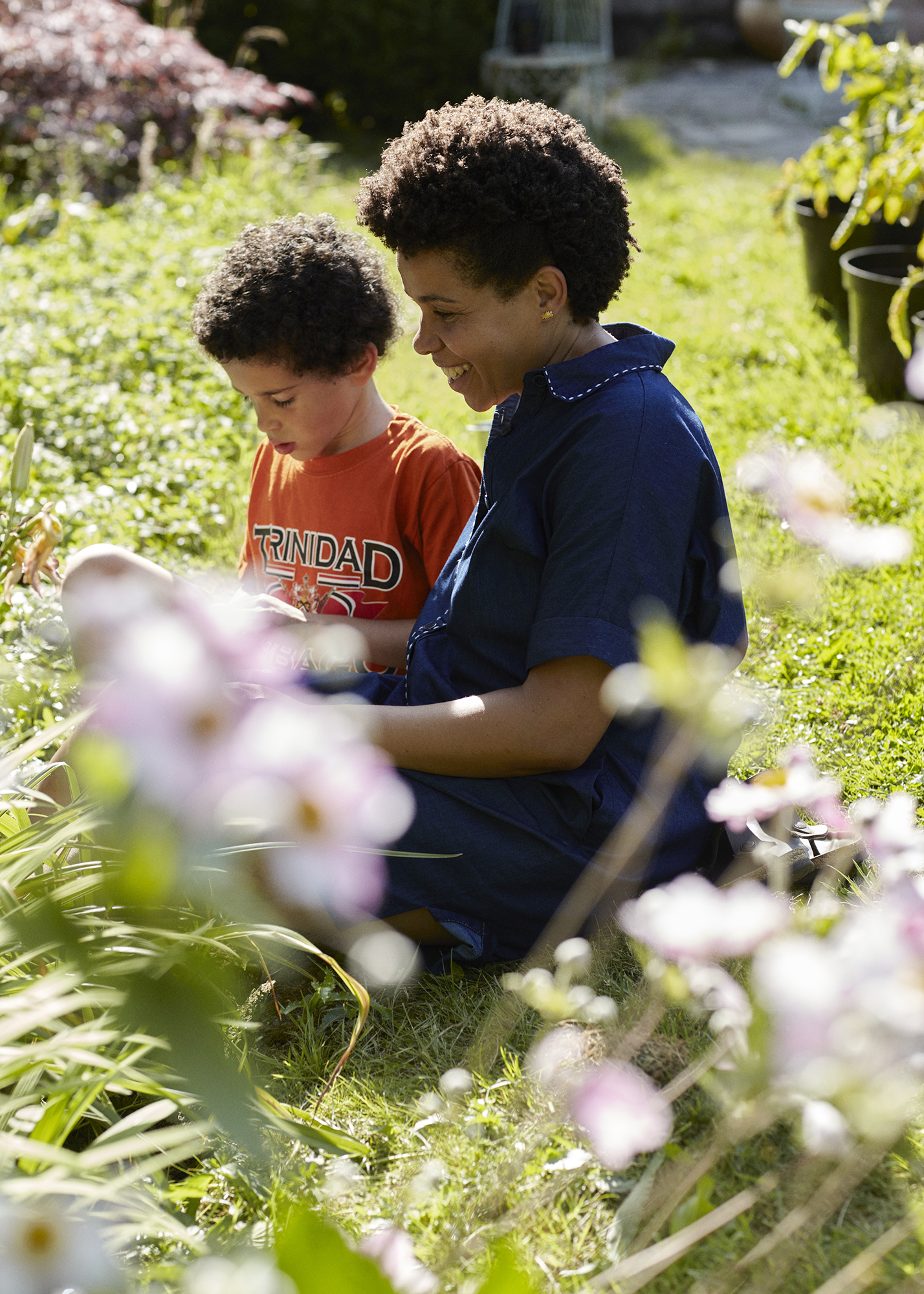
As part of the journey to settle her family in their new surroundings, as a change to the norm, her thoughts have turned more from academia to people and place. We sit and talk about how her new home with its stunning garden has allowed for her love of plants and planet to grow. She explains how she feels a real sense of connection to nature; I ask her how these feelings first developed,
“I didn't grow up in a rural area, but I spent a huge amount of my childhood outdoors. I can remember hiding in dens and making fairy potions out of flowers; as a child, I believed very strongly that fairies looked after the nature around me...
.. When I first moved to the UK, I became very disconnected and ungrounded. I was in an unfamiliar landscape and moved around from place-to-place following my medical career. And then when I had my children, I remember becoming overwhelmed with a need to feel connected again - to community, to place, to belong somewhere. And for some reason it had to be rooted in the land.”


This was the start of a drive to reconnect with nature. Marchelle explains,
“A real sense of urgency came with my son being born. It wasn’t down to external influences, it came from inside and from understanding that this baby had a future on this planet. Previously, there was a lot about my life and my training that had been cerebral. Up until this point, I’d been very in my head but pregnancy brought me back down into my body and reminded me I was part of the animal kingdom. And with that feeling came the real urgency about how the planet was in crisis.”
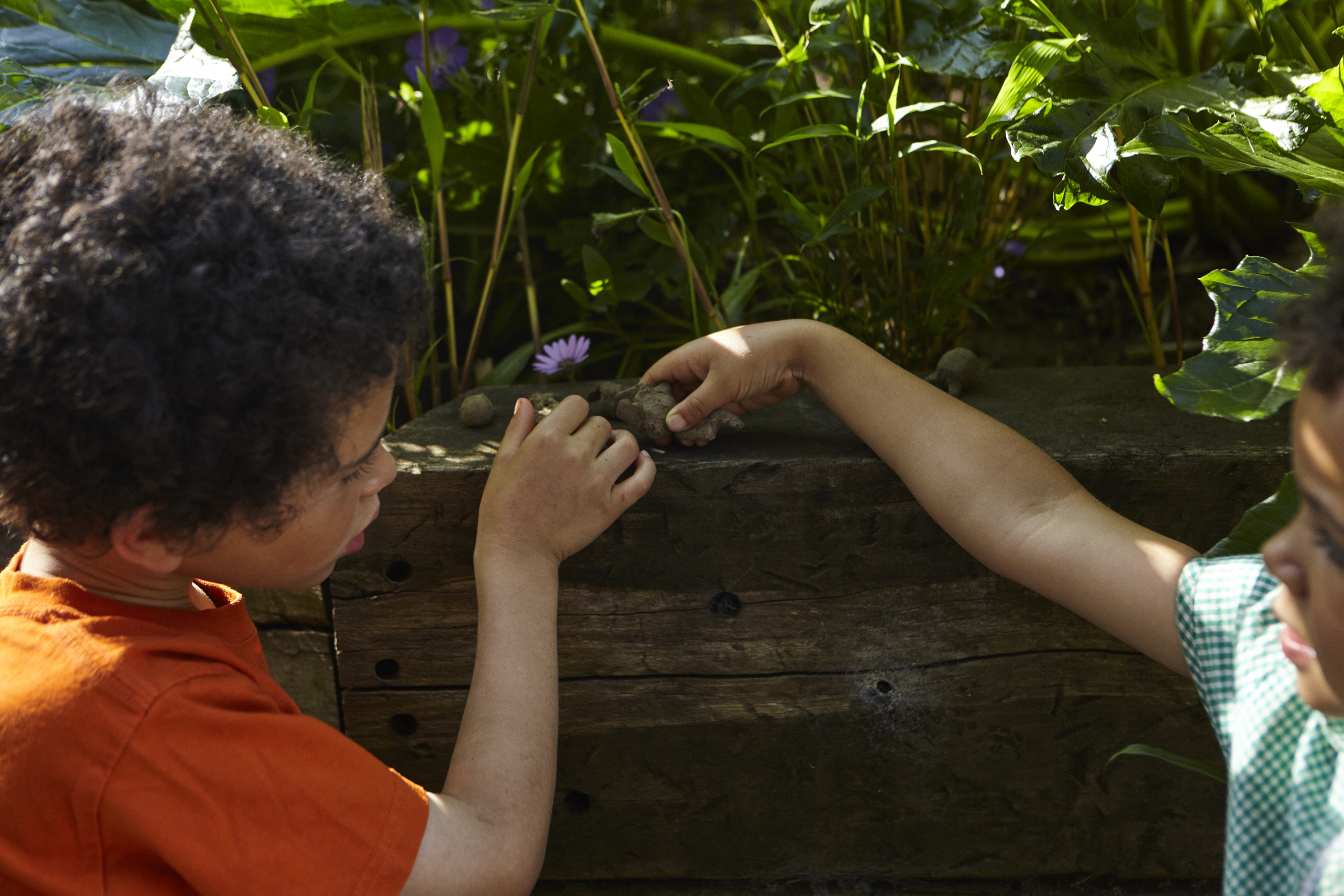
This emotional connection triggered Marchelle to start living a more light touch lifestyle and to involve herself with the climate movement when a situation arose. Like many of us, Marchelle had a like-minded friend who acted as her moral compass when it comes to engaging in climate related matters. She explains,
“We would have conversations about feeling really distressed about the state of the world, the environment and instead of just talking about it, she would say ‘well what are we going to do about it?’ and so we started by supporting the Friday's For Future strikes.”
As an empowering move, Marchelle, with her toddlers in tow, went along to her local strike to march alongside the youth. She explains what it felt like to be there,
“On one hand, it was helpful to find other people who felt a similar distress about the state of the world, enough to want to do something about it. But on the other hand, standing by and watching children have to make that point… it felt pretty depressing. I kept thinking ‘why are children having to do this? Why have we left it up to them?’ It feels as if somehow older generations have developed a scarcity mind-set where we can’t possibly be generous with our thinking; we can't think about future generations, or beyond your own retirement and death.”

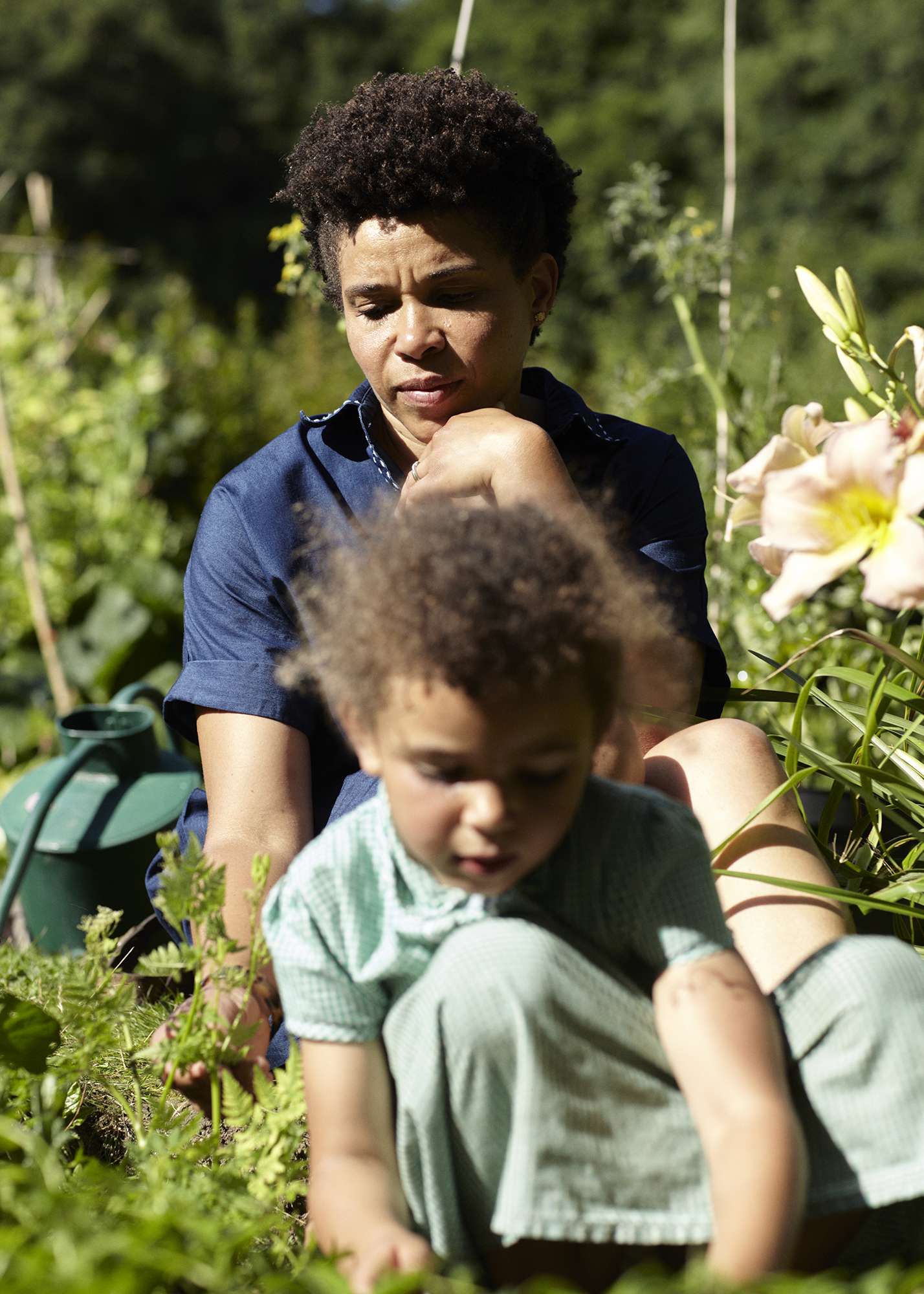
Marchelle feels this mind-set originates from disengagement with nature; a feeling that human beings somehow live outside the natural cycle of things.
Marchelle speaks about this on her social media platform; https://www.instagram.com/afroliage/ a space dedicated to her love of plants and nature. In the last 18 months, she has spoken about turning to her garden as she listens to the news unfold. It was a response to the deadening despair she felt listening to news about the pandemic and the developing Black Lives Matter campaign. Her despair, anger and hope found a place to lodge rather than being swept away in the relentless flow of the news.
She explains how her own garden provided a space to reconnect and explore her feelings,
“While we were in lockdown, I completely turned to the garden as a form of therapy. I threw myself into doing the most backbreaking of tasks so that I could process all my anxiety, worry and despair. It kept me feeling sane and gave me a thinking space. This became many times more important when George Floyd died and I found memories resurfacing of racism, triggered by what was in the media… I felt isolated in this garden in the middle of the countryside as the only black woman new to the village. It was a very strange mental space to occupy so I started writing about it.”


Marchelle’s writing has the power to resonate with many. She has a beautiful way of using natural cycles in nature to explain her inner workings as to make sense of her own feelings.
I ask Marchelle what’s next for her,
“I've involved myself heavily with my kids school. I have become a governor and participate on the PTA committee. The school wants to enhance their gardening programme, which I want to support. I want to act as a voice for environmental issues.
I also want to nurture my children’s sense of connection to this place we’ve moved to. I want them to get to know this landscape and love it and it's creatures. I want them to feel a sense of connection and belonging to the landscape, and a sense of knowing it and a sense of feeling known by it. They can then carry that feeling of connection with them, giving them a better sense of care for the natural world.”

We end our discussion by reflecting on Marchelle’s hopes for the future,
“I hope that we overthrow this horrible supremacist capitalist colonialist system that we are all still bound to. I hope that we recognise that we have agency to make different choices and that we aren't trapped. That we can live differently in a way that feels more connected with each other, community, and with the land, and this different way of being starts to feel really joyful and appealing to people.”
As summer comes to an end and the colorful display of the natural world once again fades and prepares to slumber I hold on tight to my meeting with Marchelle and incredible garden. We have so much to fight for! As the UK prepares to greet leaders from across the world in Glasgow this November for COP 26, the importance of finding strenght to raise our voices as citizens has never been as important.
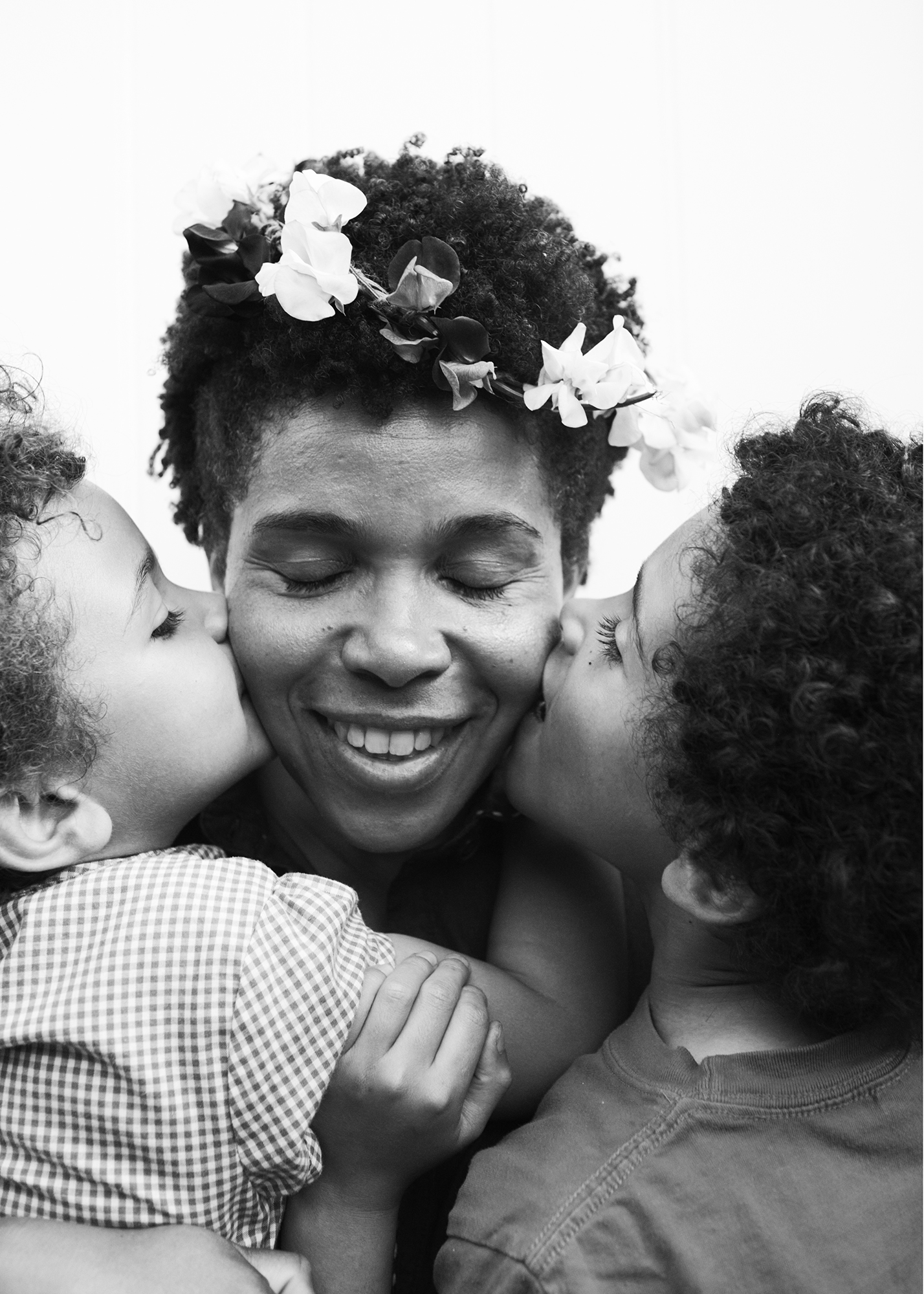
As the natural world slowly fades its colours and prepares to slumber, lets pray, that upon its awakening next spring, we have good news to tell.
Thank you Marchelle for your wisdom and for your care of people and planet. What a great inspiration you are!

THE THREE TAKE-HOME STATEMENTS:
Invest in your surroundings - Nurture your sense of connection through nature.
Use your voice within society to demonstate that a more caring way of being is possible.
Reconnect to people and place.
Links to further reading
︎︎︎︎︎︎︎︎︎︎︎︎︎
Braiding Sweetgrass by Robin Wall Kimmerer
︎︎︎︎︎︎︎︎︎︎︎︎︎ Losing Eden by Lucy Jones
︎︎︎︎︎︎︎︎︎︎︎︎︎Belonging: a Culture of Place by Bell Hooks
︎︎︎︎︎︎︎︎︎︎︎︎︎ Green Unpleasant Land by Corinne Fowler
London 2020